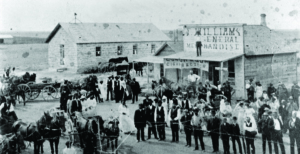
Contemporary Race Theory and the Problem of History: A Critique
The blinkered vision of the leading voices in contemporary race theory when it comes to the politics of the present is also linked to how they misunderstand the past. Because their analyses are primed to search for continuities in anti-Black racism over time, they tend to ignore an equally pernicious and consistent factor in American history—the assault on organized efforts by working people of all races to challenge the power of capital, to evade or undermine the power of the wage relationship and market compulsion, and to harness the power of the state to put the needs of working people above the pursuit of capitalist profits. Ironically, contemporary race theorists’ ignorance of the political economy of “anti-racism” in the past has meant that the conceptual anchors upon which they build their analysis—racial community and racial interest—and the cognate construct to these, “race relations,” are actually Jim Crow era formulations. In their vigorous promotion of these ideas, they can be seen as intellectual architects of the very thing that their scholarship purports to reveal and thereby dismantle—a “new” Jim Crow.
